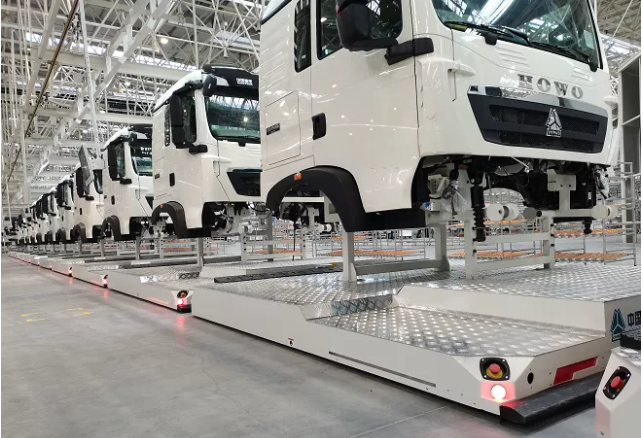With the in-depth development of intelligent manufacturing in my country, the scale of robot applications continues to expand. Replacing people with machines has become an important measure to promote the industrial transformation of traditional manufacturing industries. Among them, mobile robots have a wide range of applications and a faster growth rate because of their autonomous operation and self-planning capabilities.
According to relevant industry statistics, in 2020, the sales volume of mobile robots in my country will reach 41,000 units, and the market size will reach 7.68 billion yuan, a year-on-year increase of 24.4%.
With the consumption upgrade of the auto market, the demand for customization of vehicles has increased, and the production man-hours have been continuously shortened, which poses a great challenge to the delivery capacity of the entire automobile industry chain, forcing enterprises to quickly transform to digital.
Compared with other industrial fields, automobile manufacturing is more complex, involving tens of thousands of parts; all parts need to be loaded, sorted, monitored, transported and stored efficiently after entering the factory. At present, a considerable part of these tasks still rely on workers and forklifts. , it is easy to cause damage to goods and peripheral equipment, and even personal injury, and enterprises are currently facing problems such as rising labor costs and personnel shortages. The above reasons all provide development space for autonomous mobile robots.
As a “rush march” in the field of intelligent manufacturing, the automotive industry has begun to pay more attention to mobile robots. Many car companies such as Volkswagen, Ford, Toyota, etc., and parts companies such as Visteon and TE Connectivity have begun to put mobile robots into the production process.
Post time: Mar-21-2022






